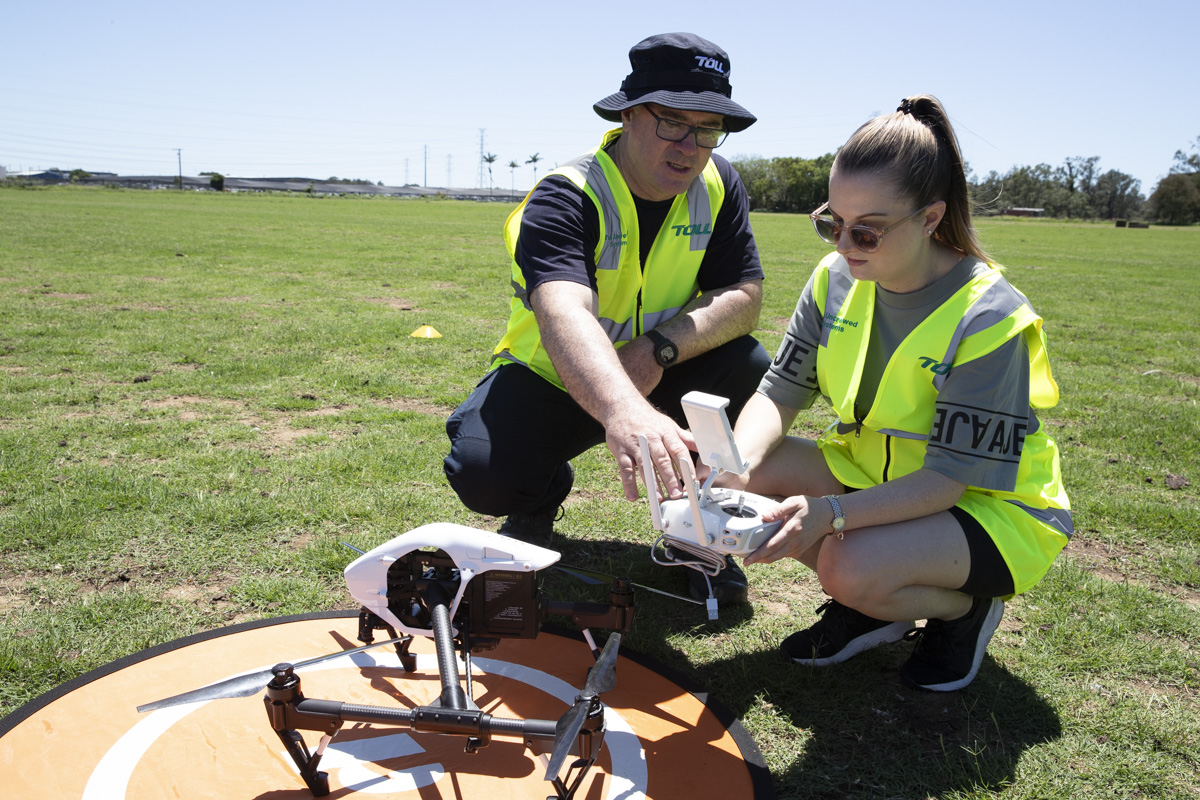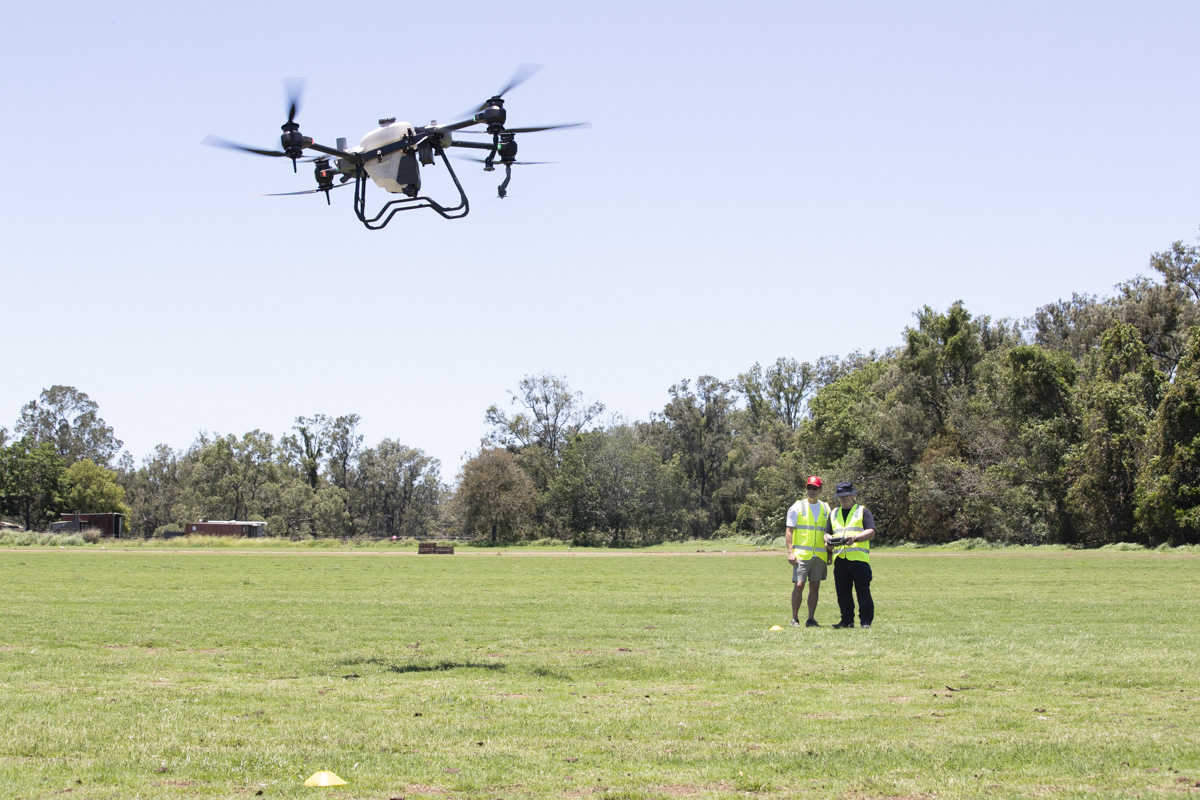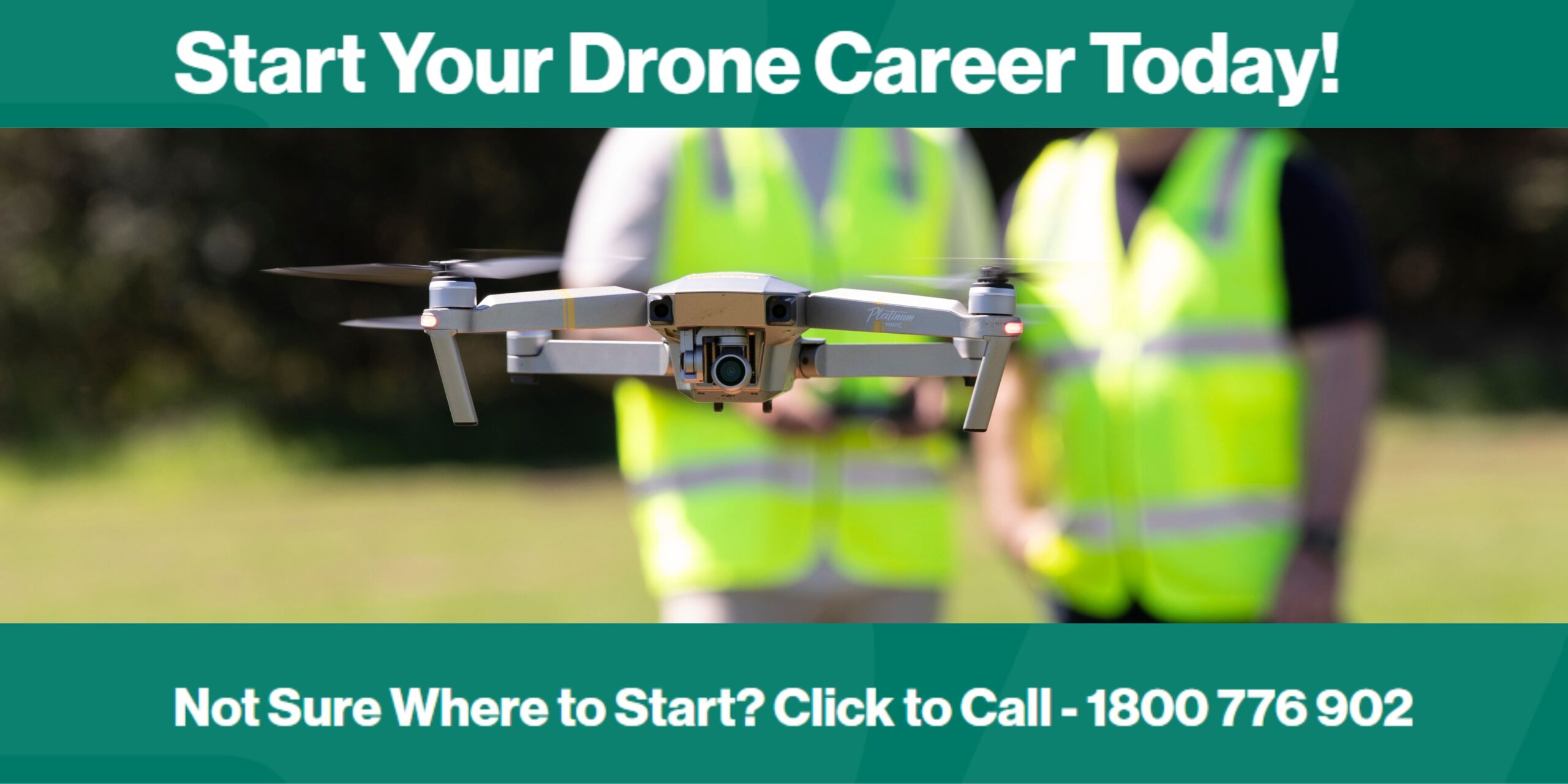Australia’s drone industry is changing rapidly. As technology evolves, we are continuously finding new ways drones can be used to support traditional industries across the country.
This creates a world of opportunity for anyone that’s interested in obtaining a drone pilot licence. These systems will only become more common as time goes on. That means becoming a drone operator is a great way to access challenging and lucrative career pathways in some of the world’s most exciting industries.
To kickstart your career we’re going to go over how to become a drone pilot in Australia and what you need to do to get certified.
Becoming a Drone Pilot in Australia
To become a professional drone pilot in Australia you need to undergo a CASA recognised training course and obtain a Remote Pilots Licence (RePL).
Your RePL is issued by an approved training organisation, and it allows you to operate certain categories of drones for commercial purposes. You may also need additional certifications for your job, such as training to fly night operations or a different category or type of drone. Anyone can train to become a Drone Pilot, however, you need a licence if you wish to:
- Operate drones commercially, and/or;
- Fly outside of the Standard Operating Conditions
- Perform more complex drone operations
Remote Pilots Licences are normally issued as part of your drone training program. These courses are offered by independent, CASA-approved training organisations that are empowered to issue your licence upon completion of your training.
If you have no prior drone experience, we also offer drone flying courses for beginners – the perfect introduction to drone pilot skills.
Course Overview
Our RePL training enables you to become a Civil Aviation Safety Authority (CASA) certified remote pilot.
Upon successful completion, participants are awarded the RePL, allowing you to operate drones in controlled airspace for commercial activities.
Participants gain a minimum of 5 hours’ hands-on experience in flying drones under various conditions. This prepares you to meet regulatory requirements and industry standards. The theoretical component of the course covers key topics, such as:
Course Enquiry
How Long Does it Take to Become a Drone Pilot?
It takes around 5 days of training to obtain a Remote Pilots Licence and become a drone pilot. Upon successful completion of the course, you will be issued a RePL and can officially call yourself a drone pilot.
Your course will include a mix of practical and theoretical training components.
This includes a minimum of 5 hours hands-on flight training with commercial drones that are commonly used throughout the industry.
The theoretical component is delivered over 15 hours in a classroom setting and typically includes competencies such as:
- Drone laws and systems
- Basic meteorology
- Operational flight planning
- Human factors
- Maps and charts
- Aviation English Language certification
If 5 days of face-to-face training is hard to schedule, some courses also offer hybrid virtual training.
This allows you to complete the theoretical components in your own time. Hybrid training courses still require a minimum amount of hands-on flight training that needs to be delivered in person.

How Much Does it Cost to Become a Drone Pilot?
It costs $1,750 to undergo RePL training through Toll Uncrewed Systems. We also offer an $890 Conversion Course that allows professionals with prior aviation experience (such as a PPL, CPL or ATPL pilot’s licence) to obtain their RePL.
The actual cost of your drone pilot training depends on which organisation you choose to work with. When choosing a drone training program, make sure to compare what each course includes.
Some providers don’t offer the full 15 hours of facilitated study, leaving you to study by yourself. If that’s the case, you may find yourself paying for additional training needed to start your career as a professional drone pilot.
It’s also a good idea to speak to potential training providers and ask which drone systems are used during their training program.
If you have a particular area of interest, such as Vertical Take Off and Landing (VTOL) or agricultural drones, it’s worth choosing a provider that can offer experience with those specific platforms.
Also, consider operational experience. Are your trainers professional drone pilots who fly operationally? Or are they trainers who never see any real-life drone action?
Skilled instructors can make a serious difference to the outcome of your training, and it’s worth investing in a course that’s run by real-world drone pilots.
Professional Drone Pilot Salary
Australian drone pilots currently earn an average of $83,700 per year.
Entry-level drone pilots can expect to earn approximately $61,000, while senior pilots can earn $100,000 per year or more.
Your salary depends on years of experience, the certifications you hold, logged hours you have as an operator and the industry you are working in.
Many of the most lucrative opportunities for drone pilots are available in heavy industries like mining and power generation.
Although these jobs will take you to remote areas, these types of employers rely on skilled pilots and accurate information.
That means they’re willing to pay a premium for experienced drone pilots who can meet their exacting standards for safety and precision.
As a bonus, these fields also offer exposure to some of the world’s leading drone technologies. This can help you earn experience with a variety of drone platforms that you’ll be able to use later in your career.

Drone Careers
Drones have rapidly become a staple in professional industries across Australia. The following industries are making use of drones in their day-to-day operations and are some of the top drone careers for employment.
- Mining. As one of Australia’s most important industries, the mining sector stays at the forefront of technological advancements. That includes using drones for surveying, prospecting, equipment inspections, stockpile management, project planning and improving safety on site.
- Construction and Engineering. Drones are widely used when planning and executing construction and engineering projects. Drone pilots take part in everything from residential construction to large-scale highway, bridge and rail projects, providing data that helps projects on time and on budget.
- Agriculture. The sheer size of modern agriculture operations means drones have quickly become an indispensable tool. Agriculture drones carry out all sorts of surveying and planning operations, but they can also be used to monitor crop health, spray pesticides, plant seeds and control wildlife and pest populations.
- Surveying. The accuracy of modern drone equipment is revolutionising surveying. Drone surveyors use UAVs to take measurements, inspect structures, assess engineering requirements and provide data that supports all types of private and public projects.
- Arts and Entertainment. Drones are a common sight in the arts, entertainment and recreation industry. Skilled drone photographers and videographers provide services to a range of clients, such as real estate agents, production companies, event planners and more.
- Emergency Services. Police, fire and rescue services are increasingly using drones to streamline their work. Drones are the perfect tool for identifying hazards, finding injured people and supporting a wide range of disaster and rescue missions.
- Defence and Public Safety. Australia’s defence force makes wide use of drone platforms for collecting information and carrying out missions. Although you will typically need to join the Australian Defence Force to take advantage of these opportunities, the skills you learn can later be transferred into civilian industries across the world.

Take Your Career to New Heights and Become a Drone Pilot with Toll Uncrewed Systems!
Drone pilots have access to some of the most exciting career opportunities Australia has to offer! If you’re looking for a rewarding career pathway in industries like mining, engineering or entertainment, earning your Remote Pilots Licence is a great first step.
Toll Uncrewed Systems is a CASA-certified training organisation that provides drone pilot training in Australia.
Our RePL course offers everything you need to earn your drone pilot certification and get started as a commercial drone operator.
Depending on what you want to achieve, we can also work with you to deliver additional training and help you make the most of the opportunities that lie ahead. Contact us today to book your RePL training or to design a training package that’s right for you.

Drew is the National Sales Manager for Toll Uncrewed Systems.

